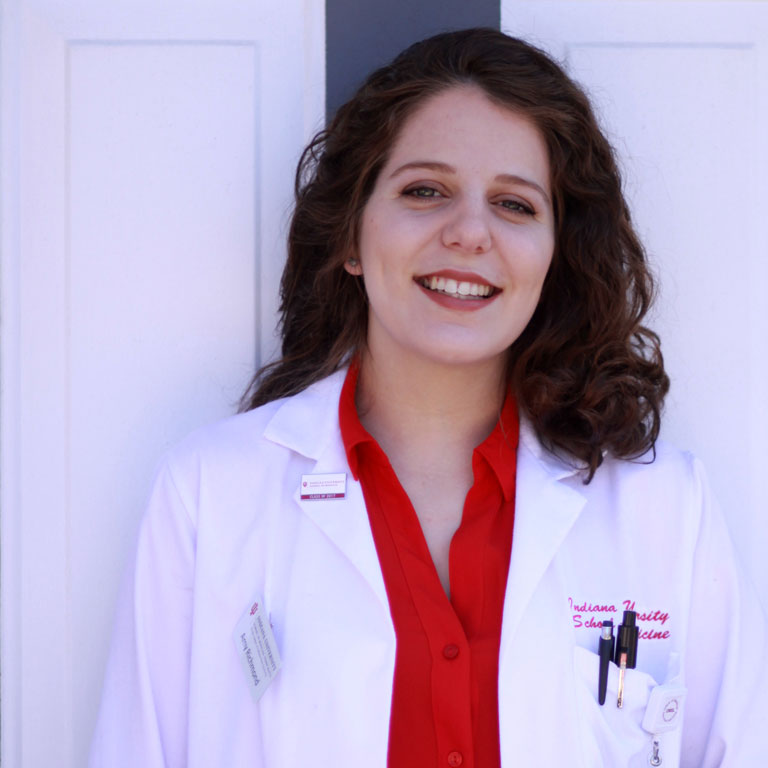Amy Richmond, fourth-year medical student at IU School of Medicine in Bloomington
I was born in Montana, but moved to Bloomington when I was a year old and lived there ever since. My dad is Native American,  and my mom is Caucasian. My mom has been a principal and superintendent of schools, so I’m guessing she heard about it through some educational channels. I also did a lot of music and art-based things, but career-wise, I was always pretty focused on science. I graduated from South High School in Bloomington, then I went off to DePauw University. I majored in biochemistry and minored in history, and I went there through a program called the Science and Research Fellows Program.
and my mom is Caucasian. My mom has been a principal and superintendent of schools, so I’m guessing she heard about it through some educational channels. I also did a lot of music and art-based things, but career-wise, I was always pretty focused on science. I graduated from South High School in Bloomington, then I went off to DePauw University. I majored in biochemistry and minored in history, and I went there through a program called the Science and Research Fellows Program.
In the Jim Holland program, we did a little bit of everything. There wasn’t a whole lot of specialization. But in the Lilly Scholars program, I was working on the chemistry and biochemistry side, doing some molecular modeling and looking at models of different molecules. The biggest thing that I took away from this program was getting the chance to hear in person from researchers and scientists who actually did these things on a day-to-day basis. You don’t always come across those people as a kid growing up, so learning more specifics about certain programs, different research, and the directions people chose in their lives. Instead of just saying, ‘Oh, you could be a biologist,’ we actually got to hear what a real-life biologist chose to do.
I thought it was amazing to actually be able to contribute to the research. The doctoral student that I was working with was very invested in giving me things to work on that were actually aiding their project. Of course, my knowledge level at that point wasn’t quite up to par with them, but they gave me things to work on that did help their research.
Right now, I’m in medicine, which is a little bit separate from the research world that I was exposed to, but I think the research that I started in high school prepared me and helped me understand what I was getting myself into when I did a whole bunch of research in college. I think those programs did a good job letting me know what research was and even though I didn’t necessarily choose to be strictly research-based—I’m more clinical-based now—I think it’s a wonderful background to have and helps me appreciate that, of course, all the advancement we have in medicine now are due to someone doing research, just like I used to do. It kind of brings it full circle for me.
I think the primary benefit for students in these programs would be exposure more than anything, especially depending on what high school you’re coming from and what sort of background you have, you might not necessarily know what’s out there. You might not know that you can do research in a particular part of science. I think understanding that that’s out there, that there’s so many different places you can go with your interests, and exposing you to what other people think. In my case, I didn’t necessarily choose to continue on the research path forever, but now I have an appreciation for people who do, and a better understanding of what they’re going through and what their contribution to the world of science is. I think starting that young with high school students is just fantastic.

